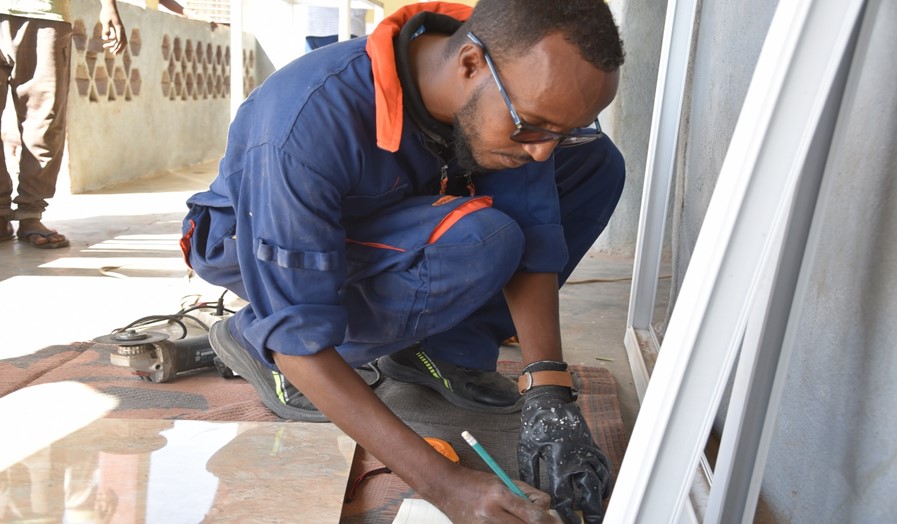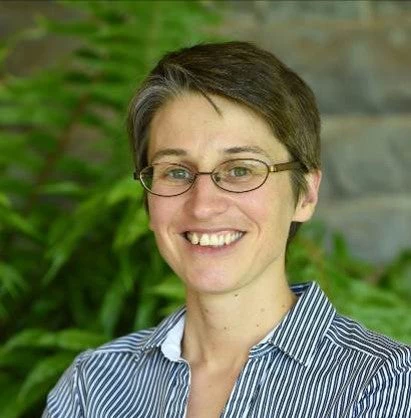 Anissa, a woman from Mouloud in Djibouti, serving tea. (Photo: Rabia Houssein Aden)
Anissa, a woman from Mouloud in Djibouti, serving tea. (Photo: Rabia Houssein Aden)
To support her family, Anissa Cheik Abdoulkader opened a restaurant overlooking National Road 1, which is very popular with Ethiopian truck drivers and the inhabitants of Mouloud in the southern region of Dikhil in Djibouti. She is one of 1,497 beneficiaries of the Youth Entrepreneurship Training Program (FORJE) run by the Djibouti Social Development Agency and the Center for Leadership and Entrepreneurship, which is part of a World Bank-financed project to support youth and women entrepreneurs.
Anissa's small restaurant has grown thanks to the program, which enabled her to get electricity and a refrigerator and hire a new, more experienced cook to expand the restaurant’s menu. “The situation of our family has improved a lot. The children have a better life, we can afford more school supplies, snacks, and clothes that we could not afford before,” Anissa said. “It makes our children happy. Before, we also took care of my husband's little brother. Today, he works at the restaurant and is now independent; he has even just gotten married.”
This program grants 2,300 microenterprises access to business development services such as accounting, marketing, managerial training, as well as seed capital. The objective of the program is to address unemployment and poverty among youth and women by giving them the opportunity to create an income-generating activity. It is in line with the government's goal of boosting the country’s private sector and making growth more inclusive.
Such a program is particularly relevant in Djibouti where the unemployment rate is nearly 79% for youth and 74% for women.
Beneficiaries receive six months of entrepreneurship training during which they learn how to set up a project, manage a business, and launch their activities, all the while creating more jobs within their community.
This is the case for Mouna Yacin Abdillahi, pictured below with her class, from the southern region of Dikhil who, along with two partners, opened a private pre-school center that now has two classes and around 40 children. “After my studies, I looked for a job for a long time, but in vain I spent my days doing nothing, and that had a big impact on my confidence,” Mouna said. “The FORJE program gave me an opportunity, a reason to get up every morning, and for that I thank the creators of the program. I feel useful to the community.”
The program isn’t just helping women, but also youth in general. Houmed Ali Moussa, pictured below, is a young man who owns an aluminum manufacturing and carpentry workshop that employs four people. "For me the impact is real because I helped many Dikhilois in their construction projects and I created jobs,” Houmed told us. “Thanks to my workshop, families have an income and I have my own business, thank God.”

Across the country, there has been a proliferation of micro-enterprises, from hardware stores to restaurants. These new enterprises are driving local economic growth and helping people to escape poverty and improve the lives of others in their community. Another example, pictured below, is an agro-pastoral farm in Obeley, supported by the FORJE program.
The holistic methodology of the program and entrepreneurship training, as well as the coaching of the facilitators, are the key success factors for the program. The mastery of certain tools, such as creating a business plan, are essential to starting a successful business, and these tools allowed the participants to acquire a solid basis for the creation of their businesses.
The entrepreneurship training program followed a bottom-up approach: women and youth came with their ideas embedded in their local communities, rather than being directed by the program to specific businesses. Also, facilitators from regional councils and local chambers of commerce were trained on the issue of entrepreneurship to share this knowledge locally and to ensure the sustainability of the program.






Join the Conversation